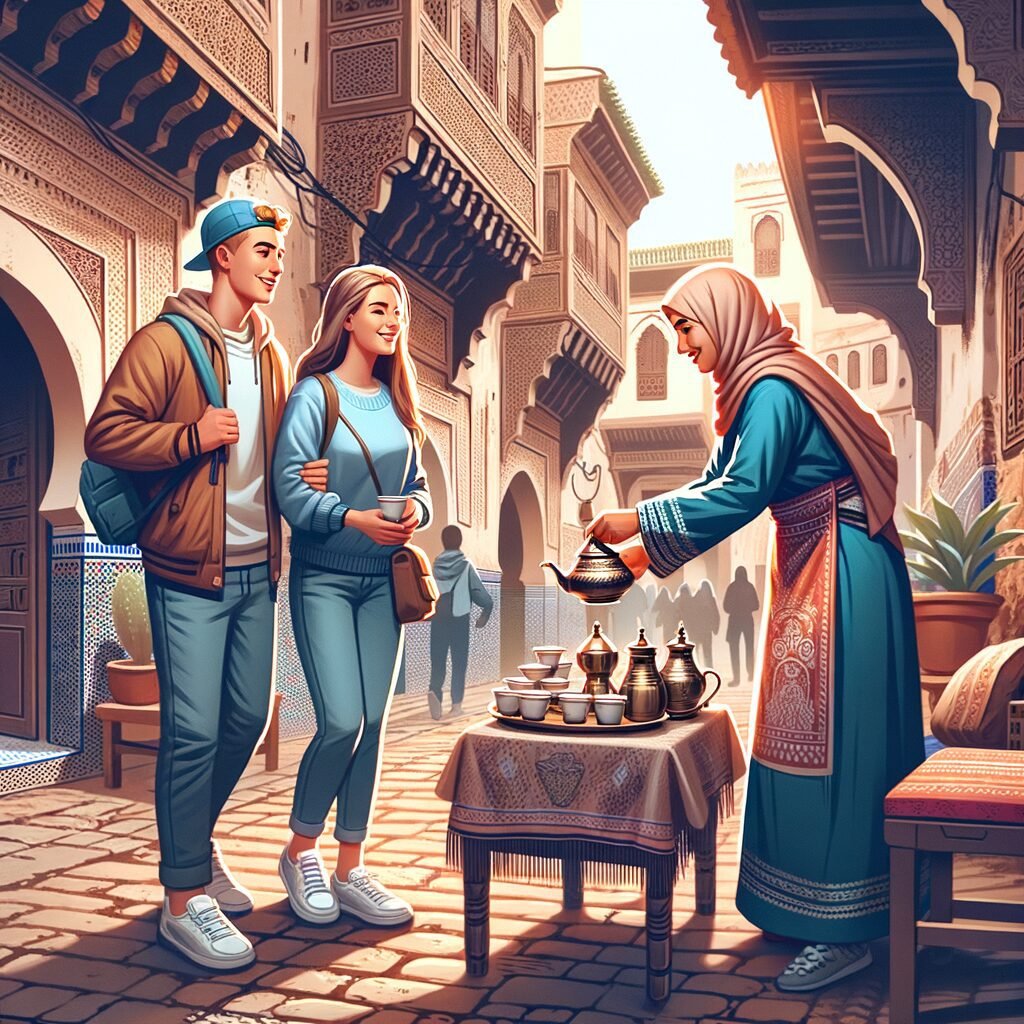Morocco is a land steeped in tradition, where hospitality reigns supreme. From the moment you step foot in the country, you’ll be greeted with a welcoming smile, a steaming cup of mint tea, and a genuine warmth that embodies the essence of Moroccan culture. This guide explores the rich tapestry of Moroccan hospitality traditions and offers insights into experiencing this unique cultural aspect during your visit.
Keywords: Moroccan Hospitality, Moroccan Culture, Traditions in Morocco, Moroccan Guest Houses, Riads in Morocco, Moroccan Tea Ceremony
Beyond Tourism: A Culture of Welcoming Guests
Moroccan hospitality isn’t just about catering to tourists; it’s deeply ingrained in the social fabric. The concept of “ضيف الله” (guest of God) holds immense importance, and visitors are treated with respect, generosity, and a sense of responsibility for their well-being. Here are some ways this cultural value manifests:
- The Ritual of Mint Tea: Be prepared to be offered countless cups of steaming mint tea, a symbol of welcome, friendship, and hospitality. Learn to appreciate the delicate preparation process and savor the fragrant beverage.
- The Invitation to the Table: Sharing a meal is a sacred act of connection in Moroccan culture. If invited to a local home, graciously accept, as it’s a sign of deep respect and an opportunity to experience Moroccan cuisine in its most authentic form.
- The Art of Conversation: Moroccans value conversation and storytelling. Engage in friendly discussions, be it with your guide, shopkeepers at the souks, or fellow travelers you meet along the way.
A Home Away from Home: Unveiling the Enchantment of Riads
Riads, traditional Moroccan guesthouses typically built around a central courtyard, offer a unique accommodation experience that embodies Moroccan hospitality. Here’s what to expect:
- Intimate Atmosphere: Riads are often family-run establishments, creating a warm and intimate ambiance.
- Intricate Architecture: Many riads boast stunning examples of Moroccan architecture, with intricate tilework, ornate fountains, and central courtyards offering a tranquil escape.
- Personalized Service: Riad staff take pride in providing personalized attention to their guests, ensuring a comfortable and memorable stay.
Beyond Tourist Traps: Experiencing Authentic Hospitality
While tourist hotspots offer a taste of Moroccan hospitality, venture beyond the well-trodden paths for a more authentic experience:
- Homestays: Consider staying in a homestay for a deeper cultural immersion. Live with a local family, experience their daily life firsthand, and learn about Moroccan customs and traditions.
- Cooking Classes: Participate in a cooking class led by a local family. Learn the secrets of Moroccan cuisine and connect with your hosts over a delicious meal you helped prepare.
- Support Local Businesses: Dine at family-run restaurants, shop at local souks, and patronize small, independent businesses. This directly contributes to the local economy and allows you to experience genuine Moroccan hospitality.
Respecting Traditions: A Guide for Travelers
To fully appreciate Moroccan hospitality, it’s important to show respect for local customs and traditions:
- Dress Modestly: While Morocco is becoming more modern, dressing modestly, especially outside major tourist hubs, shows respect for local customs.
- Learn Basic Phrases: A few basic greetings in Arabic (Darija dialect) go a long way in showing respect and appreciation for the culture.
- Be Patient and Understanding: Things might not always run according to a strict schedule. Embrace the slower pace of life and enjoy the opportunity to connect with people.
Bottom lines:
Moroccan hospitality is more than just a service; it’s a cultural cornerstone. By understanding its traditions, respecting local customs, and engaging with the people, you’ll experience the genuine warmth and generosity that defines this captivating country. So, open your heart, embrace the invitations, and allow yourself to be swept away by the magic of Moroccan hospitality.

